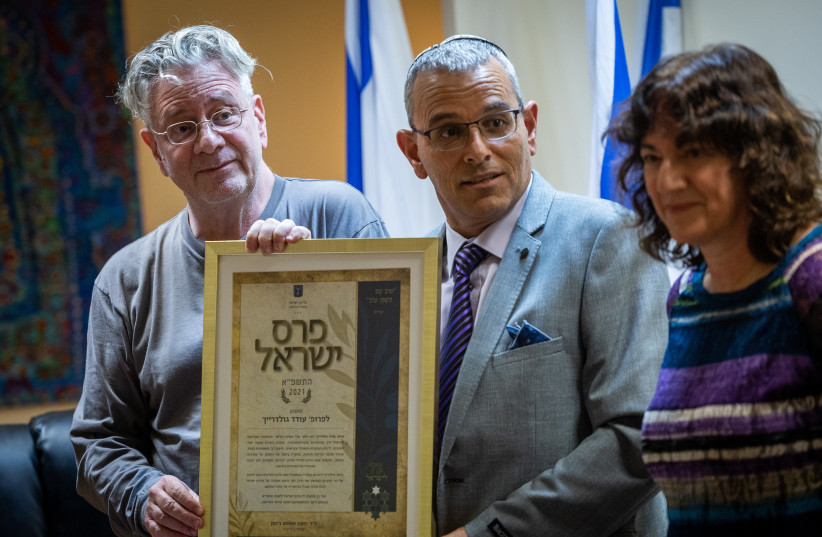Businessman, entrepreneur, and Netanyahu critic Eyal Waldman said on Sunday that billionaire Shlomi Fogel, a close confidant of Prime Minister Benjamin Netanyahu, prevented him from receiving the Israel Prize.
Fogel had exerted heavy pressure on members of the selection committee to recommend another candidate “from the right sector,” but when they resisted his entreaties, Education Minister Yoav Kisch canceled the prize in the usual fields and instead award it based on “civic heroism,” he said during a Knesset Science and Technology Committee session.
According to Waldman, his willingness to receive the Israel Prize “did not go down well with Minister Kisch and the prime minister’s associates, and perhaps the prime minister himself,” since he heavily opposes Netanyahu and the judicial reform.
“The claim that awards are not given out in time of war is not only a made-up claim, but it is also a ridiculous claim,” Waldman said. “It is precisely in times of war that the civilian fields – entrepreneurship, science, and culture – must be strengthened. Families sacrifice what is dearest to them and the best of our children, losing their lives to protect and preserve civil society.
“A country where culture, science, and entrepreneurship are abolished by hand has ceased to be a democratic country. Precisely in these terrible times, civil society must be strengthened.”

Waldman has been a public figurehead for critics of Prime Minister Benjamin Netanyahu
Waldman co-founded Mellanox Technologies, an Israel-based supplier of computer networking technology. He was a leader of the hi-tech industry’s opposition to the government’s judicial reform policies in the turbulent months preceding the outbreak of war on October 7.
Waldman’s daughter Danielle and her partner, Noam, were among those murdered at the Supernova music festival in Re’im.
Netanyahu had been partially responsible for the failures of the day, he told German news channel DW.
Despite what happened on October 7, a two-state solution was still possible, Waldman told the BBC in December.
At the committee meeting on Sunday, Waldman cited other instances where prize categories had not been changed during a war.
“Unfortunately, the current government is constantly undermining the foundations of society and democracy,” he said. “If there was truth in the minister’s claim, then one could expect the cancellation of all Independence Day ceremonies, but this is not happening.
“On the contrary, I am learning from the media that there is an intention to hold the beacon ceremony in most ceremonies and to bring the best Israeli artists to it. There is also no intention to cancel the national Bible Quiz. What is the difference between these ceremonies and the Israel Prize ceremony? The difference is Eyal Waldman.”
Shlomi Fogel responds to the claims
In response, Fogel said in a statement: “Eyal Waldman is one of the leaders in hi-tech in Israel, and he deserves to receive the Israel Prize. Fogel has nothing to do with the decision to cancel the award.”
Kisch denied that his decision to suspend the usual Israel Prize categories this year – the first time that has happened since it was first given in 1953 – had anything to do with political considerations.
The decision “stemmed solely from the country’s state of war,” he said, adding that he had “decided to exercise a values-based position, choosing to focus this year on honoring the acts of revival, heroism, and mutual responsibility of the citizens of Israel.”
Leon Kraimen contributed to this report.
